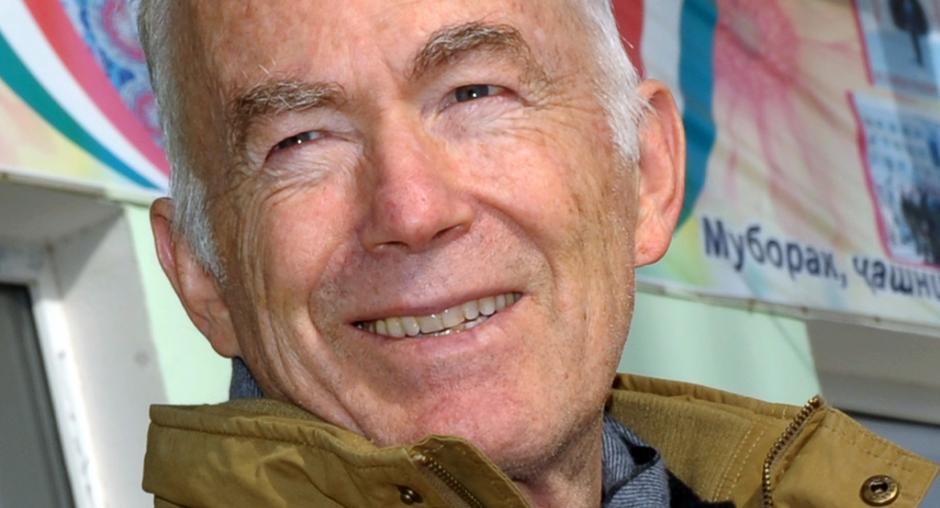Interview: Ambassador Markus Müller
I am a pragmatic person and not a fortune teller, but I strongly believe that in five years the OSCE can make, together with other partners, a relevant and useful contribution to the development of the country and helping boost the security of its people.
What was your experience before joining the OSCE?
I am an economist by profession and spent most of my time, before joining the OSCE in 2003, working with international development co-operation and humanitarian assistance. Angola, Ethiopia, Bangladesh, Mali, Middle East, Central America and Central Asia were all stations on my way. I’ve worked for over 14 years in the wider Central Asian region, including Afghanistan.
Describe your experience of Tajikistan before becoming the OSCE Head of Mission there.
I first came to Tajikistan in 1996 in the context of some humanitarian assistance of the Swiss Co-operation Office (SDC). At the time we worked with the Agha Khan Foundation in the Gorno-Badakhshan Autonomous Province. In 1997 I was appointed Director of the regional Central Asia office located in Bishkek and from there I regularly travelled to Tajikistan. We were, at this time, assisting the country in the repatriation of refugees from Afghanistan, mainly by rebuilding their houses which had been destroyed during the civil war. In the beginning we were mostly supporting humanitarian projects and only later became more active in development co-operation. In 1998 I formally opened the SDC Office in Dushanbe and also signed the first co-operation agreement between Switzerland and Tajikistan.
What motivated you to take the position?
I always kept very good memories of my time in Tajikistan and of the Tajik people, so when I was asked in April 2013 to join the OSCE Office in Dushanbe, I had no hesitation. At this time I was living in China and thought that the assignment was only for half a year. Now I am already one year here, and I have not looked back.
What are the main strengths of the OSCE?
OSCE field operations are as different as the countries and regions in which the field missions are located; indeed, mandates can be quite different. Thanks to its work in politico-military, economic and environmental and human dimensions which are based on the OSCE’s comprehensive approach to security, the Organization can boast a great deal of competence and working experience. Thus, the greatest comparative advantage of a field operation is, in my view, its flexibility to respond to the current needs of a host country by supporting initiatives which address specific security risks or challenges. The work programme of the OSCE in Tajikistan is based on the mutual understanding and trust between the OSCE Office, government institutions and civil society organizations.
What are main security challenges Tajikistan faces?
I see the biggest challenge for the country in the improvement of the socio-economic situation, jobs creation and ensuring a secure environment for private investments. Young people need to be able to see their future in the country, and the quality of life should be improved. Besides, as President Emomali Rahmon invoked in his address to the Parliament in 2014, corruption is a hindrance to the development of a business-friendly environment.
What are the priorities of the OSCE Office in Tajikistan?
The security risks the country is exposed to are similar to those many OSCE participating States face. We are here to support the authorities and the people of Tajikistan, and to make a difference in their lives.
The priorities of the OSCE in Tajikistan can be grouped in three areas:
- In the first area, political-military one, we support the government in border management, police reform, de-mining, counter-terrorism and de-radicalisation.
- In the second area – economic and environment –we support Tajikistan in its fight against corruption and improving the country’s investment climate. The Office also assists the authorities in their environment policy and civil society initiatives.
- In the third area, known as the human dimension, the OSCE Office supports the government in many areas of reform covering human rights, gender, rule of law, and democratic elections.
What role do you see for the Office in Tajikistan five years from now?
I am confident that the country is developing, although in some areas faster than in others. Much depends on the development of the Central Asia region and all of the neighbouring countries. A stable Afghanistan and good relations between the countries of the region can make a tremendous impact on development. I am a pragmatic person and not a fortune teller, but I strongly believe that in five years the OSCE can make, together with other partners, a relevant and useful contribution to the development of the country and helping boost the security of its people.
What do you appreciate most about Tajikistan?
I come from Switzerland, a country with a lot of mountains. I think that mountain people have something in common: they are pragmatic, hard-working and used to relying on themselves. I therefore feel a strong affinity with Tajikistan’s people, their outlook and way of life. I very much like Tajik dances and the special traditional spiritual music called “Shashmaqam”.
How would you describe Tajikistan to someone who’s never visited it?
Tajikistan is a very beautiful country with extremely polite, friendly and hospitable people. Travelling and trekking in the mountains is a fantastic way to enjoy the time.

